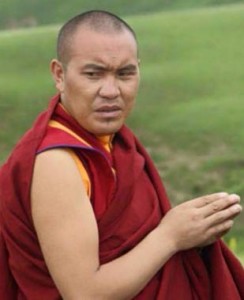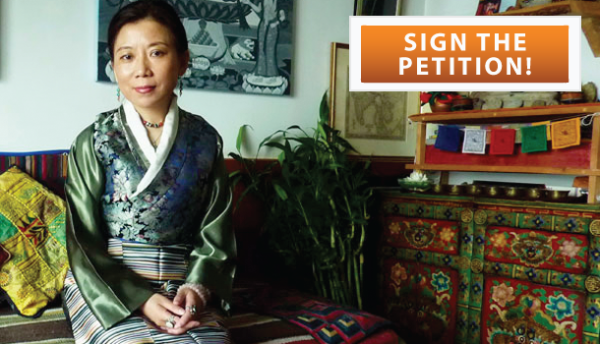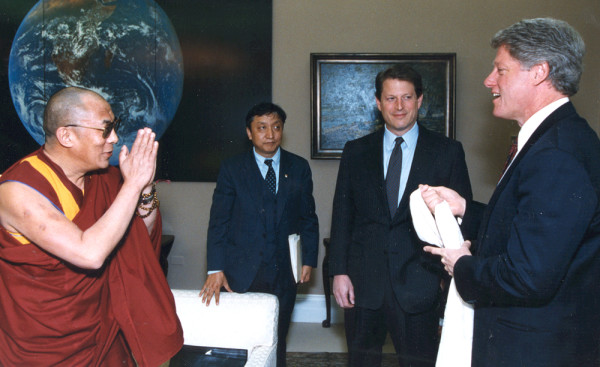Self-immolation of monk known for protecting religion and culture

Kalsang Yeshe in an undated photograph.
Local people gathered afterwards to call for the return of his body from police in order to carry out traditional religious ceremonies, according to Tibetans from the area who are now in exile. For more please see our full report.
International Campaign for Tibet calls Facebook to account over censorship

The International Campaign for Tibet launched a petition to Facebook last week calling CEO Mark Zuckerberg to account after a video of a self-immolation in Tibet posted by a prominent Tibetan writer was deleted. In another disturbing example last week, the Facebook account of a well-known Chinese writer in exile was blocked after he posted a photograph of a nude protestor.
On December 26, Tibetan writer and activist Tsering Woeser used her Facebook page to post a report and video of a Buddhist monk’s self-immolation in Tibet, Kalsang Yeshi. Within hours, Facebook deleted the post because it allegedly violated the social media giant’s “community standards.” Four days later, Liao Yiwu, a Chinese writer who has been based in Berlin for the last four years, was locked out of his Facebook account.
ICT report: Tibetan students and parents seek justice in misuse of exam results
Tibetan students and their parents in a county in Kanlho Tibetan Autonomous Prefecture in Gansu Province are seeking justice in a case of manipulation of the results of high school graduation exams to the detriment of local students, according to Tibetan sources.
Over the past two weeks, hundreds of Tibetan students and parents have been involved in vigils at the government offices in Luchu county, challenging the authorities over the apparent sale of exam results to other candidates.
Students at the Luchu Middle School, a boarding school for Tibetan students that includes a high school department, found that after their final exams in December 2014, high marks by local Tibetan students were apparently sold by some officials in exchange for the poorer results of other students from outside the area, according to Tibetan sources in contact with those in the area. For more please see our full report.
Personal words of gratitude from Lodi Gyaltsen Gyari

His Holiness the Dalai Lama meets with President Clinton and Vice President Gore with Lodi Gyari.
As Lodi Gyari retires from the International Campaign for Tibet he has written down his personal reflections on his time in Washington, D.C. and at ICT. We are pleased to share with you an excerpt from the introduction below, with more available on our website. We will publish the full piece on ICT’s website early in the next weeks.
It is with humility and gratitude that I present these parting thoughts to the staff, members, supporters and friends of the International Campaign for Tibet (ICT). You have been the backbone of this organization and ICT would not have succeeded without you being a part of this effort. For almost 25 years I worked concurrently at ICT and as Special Envoy for His Holiness the Dalai Lama, and I relied heavily on your support and assistance in discharge of my duties.
Since its founding in 1988 the ICT team has devoted itself to supporting the Tibetan people and the vision of His Holiness the Dalai Lama. I am honored to have played a leadership role in this endeavor, from the inception of the organization to the present day. Now as I step down as Executive Chair of ICT and from its Board of Directors, I cannot help but reflect on my work here with a deep sense of satisfaction in our accomplishments.
For more please click here.
NYT: “Maoists in China, Given New Life, Attack Dissent”
NYT’s veteran China reporters, Andrew Jacobs and Chris Buckley, have filed an important piece studying the way Xi Jinping is encouraging Maoist elements in China in a way unseen since the death of the Great Helmsman himself:
“Since Xi came to power, the pressure and control over freethinkers has become really tight,” said Qiao Mu, a Beijing journalism professor who was demoted this fall, in part for publicly espousing multiparty elections and free speech. “More and more of my friends and colleagues are experiencing fear and harassment.”
Two years into a sweeping offensive against dissent, Mr. Xi has been intensifying his focus on perceived ideological opponents, sending ripples through universities, publishing houses and the news media and emboldening hard-liners who have hailed him as a worthy successor to Mao Zedong.
…
The latter-day Maoists, whose influence had faltered before Mr. Xi came to power, have also been encouraged by another internal document, Document No. 30, which reinforces warnings that Western-inspired notions of media independence, “universal values” and criticism of Mao threaten the party’s survival.
For more please see the full NYT article.

